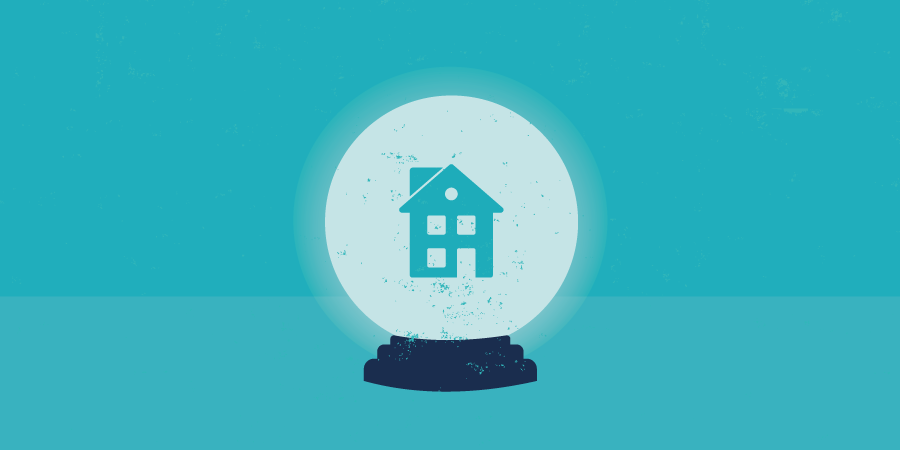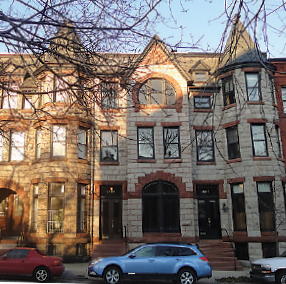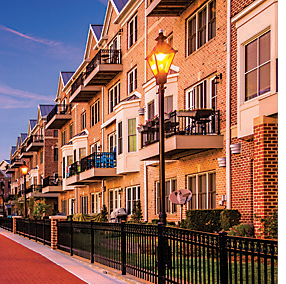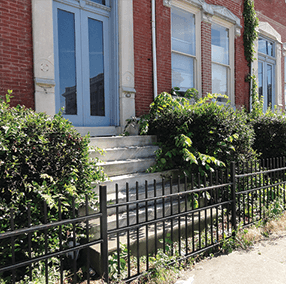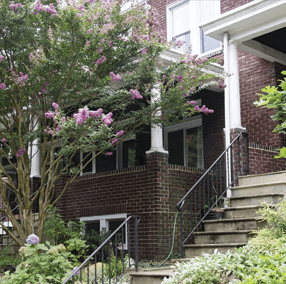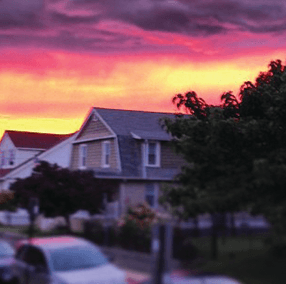Home & Living
Real Estate Predictions for 2015
We ask an expert about the market's future and pick the best neighborhoods worth a second look.

Andrew Strauch – LinkedIn
Where’s the market going in the next year? Who better to read the real-estate tea leaves than a guy who lives and breathes the industry indicators—Andrew Strauch, vice president of product innovation and marketing at Mid-Atlantic multiple listing service MRIS. His forecast for the rest of 2015? A strengthening economy (which should mean more people with money to buy), lots of houses to choose from (think reasonable prices), and historically low interest rates (even if Janet Yellen tweaks them a bit).
What’s your take on what the Federal Reserve will do?
It’s anybody guess, but we work with economists to try to see where that’s headed, and it looks like, with an end in 2014 to quantitative easing [when the Federal Reserve tried to cure the economy by buying trillions of dollars in assets from banks and other institutions to raise asset prices and increase the money supply], some measures will be put in place in 2015 to raise interest rates. As a result, I’m guessing average 30-year mortgage rates will be 4.5 to 5 percent in 2015—they’re now in the high 3s—though 4.5 to 5 percent is still historically low.
At the same time, however, in the overall context of global economies, a lot of other developed economies are in recession, meaning a strong dollar, and therefore low U.S. bond yields (which affect interest rates and could soften the effect of any increase in short-term rates by the Fed).
Mortgages were hard to get post-recession. Is that changing?
Yes, there has been an easing of credit standards. Especially for first-time buyers, Fannie Mae and Freddie Mac, which guarantee mortgage loans, will be allowing lower down-payment programs. This should give many people more opportunity to purchase a first home, which brings more buyers into the market.
National statistics suggest that the millennials have been sitting out the market, and opting to rent. Do you see that changing?
I think there’s higher interest among millennials in purchasing homes than you might see from the national discussion. We’ll see millennials over time getting into the market, especially if they’re looking to get married and have kids.
What effect will downsizing boomers have on the market?
If you look at a lot of cities, including Baltimore, the number of condos being built and the level of luxury associated with those condos is more than we’ve seen in past. So it’s not just about downsizing, but also what’s called right-sizing—downsizing without giving up lifestyle.
On a related topic, we’ve all seen the stats on the number of millennials returning to live with parents. When that ends, how will it affect the parents’ housing decisions?
As the unemployment rate drops, things are looking up for the millennials. That suggests the boomerang effect of millennials moving back home—which is related to the recession and the millennials’ ability to get that first job—will dissipate, enabling more of those boomers to downsize.
It’ll be seven years since the recession started, so a lot of people who had money problems will be aging out of the negative marks on their credit reports. And the huge percentage of underwater mortgages [houses worth less than what owners owe on them] has dropped. Will that help the market?
Both factors are important, but fewer mortgages being underwater is definitely helping the market. The vast majority of homes are above water now, which was not the case a few years ago. That should open up some liquidity.
Where do you see prices and inventory going?
Inventory was tight about two years ago, but it’s up year over year—there’s five or six months of inventory now, and that’s a healthy place for it to be. It might grow a bit more into 2015, which will control prices. We’ve already seen a slowdown in price increases in markets in and around Baltimore, and we expect limited price increases in 2015.
